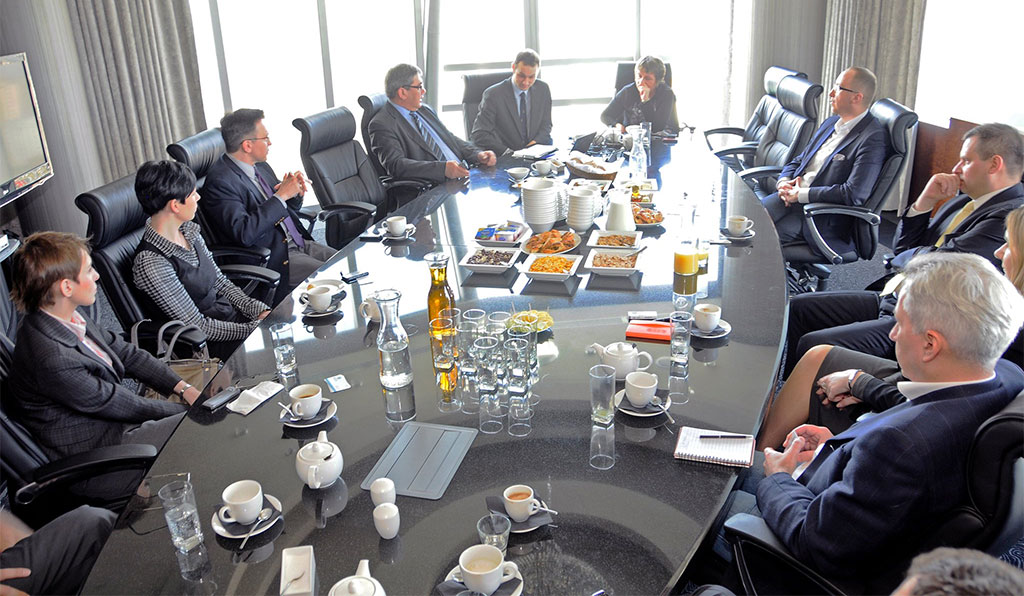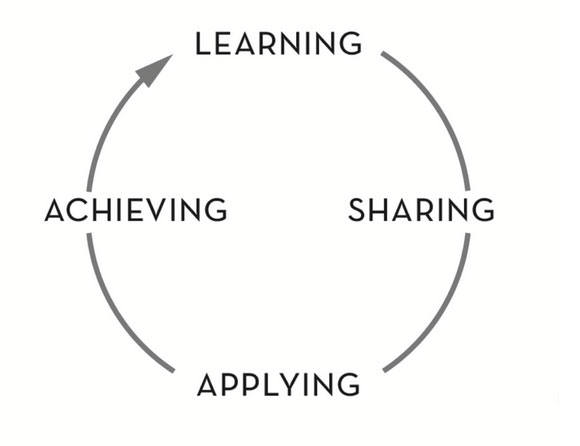Why the Companies of the Future Will Need Groups AND Teams

Renowned American basketball coach Phil Jackson once said, “The strength of the team is each individual member. The strength of each member is the team.” If this makes sense to you, consider the difference between groups and teams, and let’s explore why they need each other to create the individual and team strengths Jackson is talking about.
Groups convene to help their members achieve individual goals. It’s the mechanism that serves as the practice field, where peers help each other learn and grow to be more substantial individual contributors to their teams. Teams are comprised of individuals charged to work together to achieve a collective goal or create a shared work product. Such units may involve a business team working to develop an innovative product or a sports team striving to win a world championship.
The Attributes Common to Great Groups and the Best Teams
Group work strengthens relationship bonds among team members, helps these members hone their individual skills, and inspires a culture of accountability (member-to-member) that doesn’t make employees feel they are always playing defense. Here are five attributes shared by great groups and the best teams:
- A robust Learning-Achieving Cycle.
The Learning-Achieving Cycle is a reinforcing loop of learning, sharing, applying, achieving, learning, sharing, and so forth. Employees learn better when they learn together. When a group or team drives a culture of learning and growing, everyone wins – the individuals, the teams, and the organization as a whole.
- A culture of team member accountability. Among groups and teams, accountability in this narrative doesn’t mean accountability to the leader. Top groups and teams are comprised of individuals who accept personal responsibility for bringing their best selves to work every day. Their currency in the organization rests in their peers’ belief that they can be counted on to do what they say they will do – and do so exceptionally well.
- A focus on outputs as well as outcomes. All too often, whether it’s a team or a group, being too focused on outcomes draws attention away from the outputs necessary to achieving the lofty results you’re looking for. Don’t be the person at the poker table who can’t help but stop and count his chips when he’s supposed to be playing the game. The people who are laser-focused on outputs will beat those focused on outcomes every time – in fact; it won’t even be a fair fight.
- A leader who is a part of the team, not apart from it. A significant factor in developing a member-to-member accountability culture is for the team leader to consider him or herself to be a part of the team, not apart from it. The leader (her special role notwithstanding) is still on the team and accountable to the team, just as the members are accountable to one another. As a group and a team, you win together, lose together, and celebrate and mourn as one in a manner that builds individual character and team strength over the long-term.
- A commitment to big goals as rewards. No matter what the pursuit (a game-changing new client or a world championship), focusing on the big end-goal is less effective than pursuing the goal of doing everything it takes to get better as individuals (group work) and as team members (teamwork). It’s all about continuous improvement – that’s the goal. The win is the reward. It’s the difference between teams who are always competitive (in business and sports) and those who are not.
What Groups Will Help Your Teams Do Even Better
If you were to conduct an online search for the words “business practice,” with rare exception, just about everything you’ll find will involve business as a practice or business best practices. Run a search for “golf practice,” and you’ll discover endless links on how to practice your golf game, including videos, tools, articles, etc. In business, every day is a game day, and consequently, we don’t take the time to practice our craft nearly often enough. Conclusion: this lack of practice compromises the individuals in your company who don’t take the time to hone their skills and your teams who are not as strong as possible if you believe in Phil Jackson.
Groups will also help your teams create better strategic alignment and engagement, particularly your cross-functional work teams, who provide a lens into the organization’s broader needs with the help of their peers from other departments. They help team members forge better relationships and build trust in each other’s talents and skills. Group work also shines a light on extracting inclusion from diversity – the essential part of any diversity and inclusion initiative.
Finally, groups are fantastic vehicles for operationalizing learning and development. In most companies, no matter how great the content or how talented the trainers, there’s typically little learning or development that takes place. To be fair, the deck is not exactly stacked in their favor. Unless, as a leader, you provide a means for people to take what they learn, practice it, and apply it to their work as individuals and as team members, it’s simply not going to happen.
Summary: To adapt to the challenges and opportunities in this ever-changing world, our employees and their teams need to be continually learning, growing, applying, achieving, and learning some more. Leading that effort today, one that empowers your employees to grow in groups and teams, will assure that your company will have the talent and skills to adapt and thrive in the foreseeable future.
Have you read?
Highest Paying Jobs Without A College Degree.
Highest Paying Technology Jobs.
Highest Paying STEM Jobs.
Highest Paying Healthcare Jobs.
Add CEOWORLD magazine to your Google News feed.
Follow CEOWORLD magazine headlines on: Google News, LinkedIn, Twitter, and Facebook.
Copyright 2024 The CEOWORLD magazine. All rights reserved. This material (and any extract from it) must not be copied, redistributed or placed on any website, without CEOWORLD magazine' prior written consent. For media queries, please contact: info@ceoworld.biz









